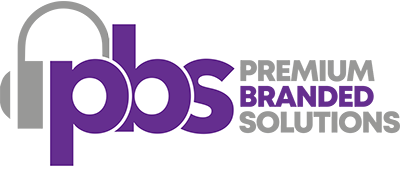Understanding the Power of Information Blogs
An information blog serves as a hub for sharing knowledge, insights, and expertise. In an era where digital content is king, these platforms help users access reliable online resources on diverse topics. Whether you’re an expert in technology, health, or finance, an information blog allows you to connect with audiences seeking clarity and guidance. By focusing on high-quality digital content, bloggers can establish authority and drive consistent traffic.
Key Elements of a High-Quality Information Blog
A successful information blog requires more than just good ideas—it demands structure, consistency, and strategic planning. Key components include clear navigation, mobile responsiveness, and fast loading speeds. Integrating SEO strategies ensures your digital content ranks well in search engines, while effective content marketing helps attract and retain readers. Prioritizing user experience and credibility will set your blog apart from competitors.
How to Choose the Right Niche for Your Blog
Selecting the right niche is crucial for an information blog. Identify topics where you have expertise or passion, and ensure there’s sufficient demand among audiences. Tools like Google Trends or keyword research platforms can reveal popular themes. Avoid overcrowded niches unless you bring a unique perspective. Leveraging online resources to analyze trends ensures your focus aligns with reader expectations.
Tips for Developing Engaging Content
Create content that resonates emotionally and intellectually. Use storytelling, visuals, and actionable tips to enhance readability. Incorporate SEO strategies naturally—optimize headlines, meta descriptions, and headers with relevant keywords. Regularly update your digital content to maintain freshness and relevance. Engaging readers through comments or polls fosters loyalty and strengthens your information blog’s impact.
Essential Tools for Bloggers in 2025
- Content management systems like WordPress streamline publishing and design.
- https://aheadofthespread.com/ offers analytics tools to track visitor behavior and refine strategies.
- Grammarly ensures error-free writing, enhancing professionalism.
Monetization Strategies for Information Blogs
Monetizing an information blog involves diversifying income streams. Options include affiliate marketing, sponsored posts, and selling digital products. Effective content marketing builds trust, making audiences more likely to engage with paid promotions. Subscription models or membership tiers can also generate recurring revenue. Always balance monetization with the value your digital content provides.
The Role of SEO in Growing Your Blog
SEO strategies are vital for visibility. Optimize your information blog with targeted keywords, meta tags, and alt text for images. Internal linking improves navigation, while external links to credible online resources boost authority. Regularly updating your blog with fresh digital content signals relevance to search engines. A robust SEO foundation ensures your efforts reach the right audience efficiently.
Common Challenges Faced by Bloggers
Blogging challenges include maintaining consistency, standing out in crowded niches, and adapting to algorithm changes. Time management and writer’s block can hinder progress. Overcoming these requires discipline, leveraging online resources, and experimenting with new formats like podcasts or videos. Prioritize quality over quantity to sustain long-term growth for your information blog.
Building a Community Around Your Blog
Foster engagement by encouraging interactions through comments, social media, or forums. Host Q&A sessions or webinars to deepen connections with your audience. Sharing behind-the-scenes insights humanizes your brand and strengthens loyalty. Communities thrive when readers feel valued, turning casual visitors into dedicated followers of your information blog.
Future Trends in Information Blogging
In 2025, digital content will evolve with AI-driven personalization and interactive features. Voice search optimization and video content will gain prominence. Bloggers must adapt to these shifts by integrating emerging technologies and prioritizing user-centric SEO strategies. Staying ahead of trends ensures your information blog remains relevant in a rapidly changing landscape.
Measuring Success Through Analytics
Track metrics like page views, bounce rates, and conversion rates to evaluate performance. Tools like Google Analytics provide insights into audience behavior, helping refine content marketing efforts. Monitor how digital content performs across devices and locations to optimize your approach. Regular analysis ensures your information blog meets its goals effectively.
Legal Considerations for Bloggers
Ensure compliance with copyright laws, data privacy regulations, and disclosure policies. Always attribute sources for online resources and avoid plagiarism. Familiarize yourself with FTC guidelines for affiliate marketing. Legal adherence protects your information blog from risks and builds trust with readers.
Staying Updated with Industry Changes
Follow industry leaders, attend webinars, and subscribe to newsletters to stay informed. Experiment with new SEO strategies and content formats to keep your information blog dynamic. Continuous learning ensures your digital content evolves alongside technological advancements and audience preferences.
Conclusion: Final Thoughts on Information Blogging
Creating a thriving information blog demands dedication, creativity, and strategic execution. From selecting the right niche to mastering SEO strategies, every step contributes to success. Leverage online resources and innovative tools to elevate your digital content. With persistence and adaptability, your information blog can become a trusted source of knowledge and influence in 2025 and beyond.
